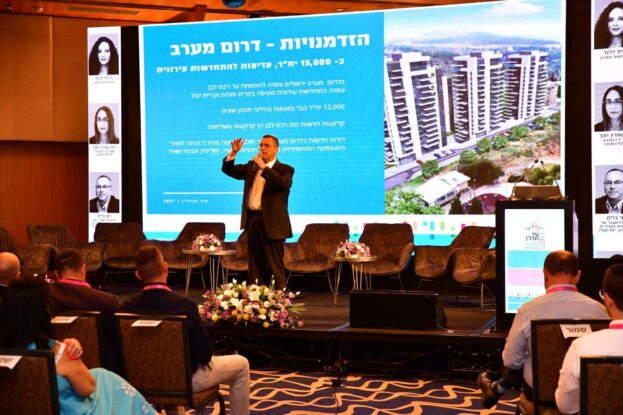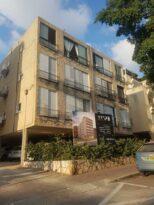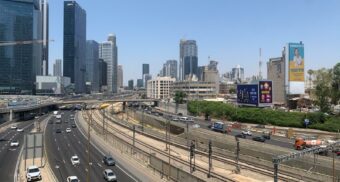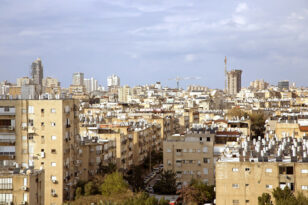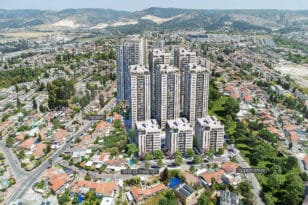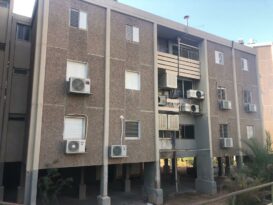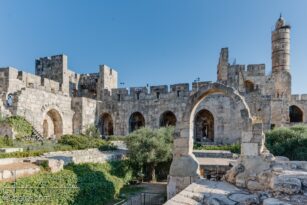During an urban renewal conference in Jerusalem this month, Mayor Moshe Leon revealed plans to expand construction in the city to 10,000 apartments a year in order to attract the secular and national religious sectors. Approximately 33,000 apartments in major urban renewal projects are in various stages of planning, but only 500 are already under construction.
Rebuilding Jerusalem — What will Israel’s capital city look like in ten or twenty years? This question was the focus of the Israel Construction Center’s National Conference on Urban Renewal held in Jerusalem earlier this month. Among the participants were dozens of senior government officials, leaders of local authorities, entrepreneurs, and leading professionals in the urban renewal industry and in the real estate field in general.
Although the conference addressed the challenges of urban renewal throughout the country, the host city of Jerusalem was the focus. Speakers presented an ambitious challenge for Israel’s capital city: to reach 1.5 million residents by 2040. Jerusalem is already the largest city in Israel by a significant margin: its population stands at roughly 950,000 residents, more than twice the size of Tel Aviv, the second largest city in the country, with a population of about 400,000.
Mayor aims to attract secular and national religious sectors to Jerusalem
In a lecture given during the conference, Leon set a number of goals for rebuilding Jerusalem. According to the mayor, in recent years there has been an average of 2,000 apartments built each year throughout the city. He hopes to increase this number exponentially, aiming to build 10,000 new housing units every year in the Holy City. Leon did not hesitate to engage in sensitive demographic issues over the course of the conference:
“Jerusalem’s current population is made up of 350,000 Arab residents in East Jerusalem, making it the largest Arab city in Israel, and 300,000 ultra-Orthodox residents, making it the largest ultra-Orthodox city in Israel. Another 300,000 are secular and national religious…Ultimately, my goal is ultimately to create a strong Jerusalem. We want to build the city, and we especially want to increase the number of secular and national religious residents. We will do this by building a lot of urban renewal projects and many employment centers.”
Leon hopes to balance urban construction with environmental preservation
According to Leon, the importance of urban renewal in Jerusalem is that it allows the city to grow while reducing expansion into the open green spaces to the south and west of the city that have great environmental importance:
“I will do everything to prevent development in our green spaces. Because of this, we’re going to rebuild the old neighborhoods on the train lines. All along the light rail route, we’re going to build thirty story buildings.”
According to the data presented by Leon, there are currently ninety urban renewal projects at various stages of planning and construction, with a total of 32,500 apartments. Of these, 7,740 have already been approved, but only 534 are under construction. About 8,000 of the apartments will be built in the Kiryat Yovel neighborhood and 5,000 in Gilo.
Plans to expand public transportation will serve the growing population
Leon also spoke about the transportation infrastructure that will support this volume of construction, mostly referring to the expansion of the Jerusalem Light Rail beyond the Red Line, which already runs through the city. According to Leon, the Green Line, which is currently under construction, will begin operating in early 2024. The line begins in Givat Ram and ends in Mount Scopus, passing through the City Center and ultra-Orthodox neighborhoods along the way.
There are also plans for a third line – the Blue Line – which is currently in the final stages before construction. Leon predicts that the expansion of the light rail will allow many Jerusalemites to forgo their own private cars in favor of public transportation.
Mixed-use development will focus on residential, business, and commercial construction in rebuilding Jerusalem
Along with Leon, other senior city officials presented at the conference, including Yoel Even, the City Engineer of Jerusalem:
“Today, there are about one million people living in Jerusalem. Next in line is Tel Aviv with 400,000 people. This is an entirely different situation. One tenth of the country lives here, and this means we need intensive development. We expect that 1.5 millions people will live in Jerusalem in twenty years from now, and we want to build more and more housing units, employment centers, and commercial areas.”
Eyal Haimovsky, CEO of the Jerusalem Development Authority (JDA), referred to some of the flagship urban renewal projects that are rebuilding Jerusalem, including the plan to revamp the Talpiot industrial zone:
“The plan sits on one square kilometer in the center of the city, located on the route of the Jerusalem Light Rail and close to the new entrance road planned for the city, Highway 16. It has gone through all stages of planning and is ready to go. This area is the future of Jerusalem, characterized by mixed-use development. Young people today want everything close by – the workplace, gym, shopping, and more. The vision is to attract young couples, some of whom are second-generation Jerusalemites who grew up here and want to stay in the city.”
Tel Aviv’s leading developers are investing in rebuilding Jerusalem for the first time
Finally, it was interesting to hear the perspective of those who will be implementing all of these grand plans: the developers and the contractors. The presence of many senior entrepreneurs stood out at the conference, some of whom are generally affiliated with Tel Aviv, but in recent years began to carry out their first major projects in Jerusalem as well.
One of those was Asaf Tuchmair, Chairman and Owner of the Israel-Canada Group. Tuchmair spoke about the Midtown Jerusalem tower that the company is building at the entrance to the city. He estimated that the total investment in the project was over NIS 2 billion:
“When an investor comes and puts that kind of money into just one project, it obviously causes a lot of butterflies in your stomach. We wanted to recreate the success of Midtown Manhattan in Jerusalem, but Jerusalem is not just another city. There is a lot of respect and awe for the city, its history, and what it represents. We consulted with every leading architect in the country – and some around the world – about how to build a tower that gives the proper respect to this city. The final plan is to preserve the historic building of the old Shaarei Tzedek Hospital by turning it into a hotel, and then building a tower above it made of iron, glass, and Jerusalem stone.”
Nachshon Kivity, Chairman and Owner of the B.S.R. Group, spoke about the B.S.R. project in Machane Yehuda: “I have a past in this city, and for me, the company’s entrance into the future of Jerusalem completes a circle. We identified the potential in Machane Yehuda – we’re talking about enormous potential. Tel Avivians also love the outdoor market and come all the way here to go out and enjoy. At the end of the day, 50 minutes on a train isn’t that difficult. When I once spoke with the mayor, he told me that his dream is for the Tel Aviv developers to come to Jerusalem and build the towers here as well…It is no longer a dream, now it’s happening.
Hope rebuilds the ruins of Jerusalem. The Jewish people kept hope alive, and hope kept the Jewish people alive.
Rabbi Lord Jonathan Sacks z”l
In the words of Rabbi Lord Jonathan Sacks z”l “Hope rebuilds the ruins of Jerusalem. The Jewish people kept hope alive, and hope kept the Jewish people alive.” This year, as we enter “The Three Weeks” between 17 Tammuz and 9 Av which commemorate the destruction of First and Second Temples, we hope and pray that we witness the complete rebuilding of Jerusalem, speedily in our days.

